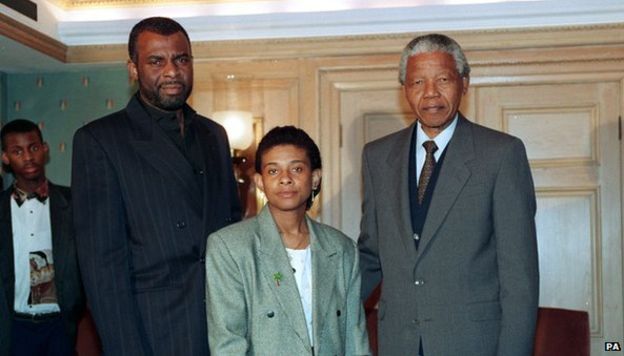| TALKING WITH THE STEPHEN LAWRENCE CHARITABLE TRUST
- Savannah Williams
- Jun 20, 2020
- 7 min read
This week I had the opportunity to interview one of my old Secondary School teachers, Stuart Lawrence. Stuart Lawrence is the younger brother of Stephen Lawrence who was murdered in a racists attack in 1993, despite this being a tragic story, Stephens family made positive light out of the adversity by founding the Stephen Lawrence Charitable Trust.
Reflecting on my years in secondary school, I always remembered Mr Lawrence as the cheerful, smiley teacher who had authority but with a kind heart and friendly personality. He was a good role model and positive character of the school. He did not seem like someone who was a victim of a nationally known tragic story.
"Young people today should be able to enjoy life and be carefree not fighting this injustice."
In this interview we touch on the trusts story, architecture, current issues and the relevance of supporting those who are often discriminated or at a disadvantage.

| Firstly I just wanted to start by asking, how have you been finding quarantine life?
Do you know what to be fair I can't complain. You hear about so many people loosing their loved ones loosing their jobs, you have to be thankful for small mercies. As much as I’ve financially lost, I’ve not lost anything else, I’ve been able to spend time with my family. It’s been weird socially but on a personal level its been good. As in anything in life you can either see it as a negative or try and find the positives, I do try to find the positives in dark situations or when it doesn’t look like its possible, I try and find an array of hope somewhere.
| Could you give us a little introduction to the Stephen Lawrence Trust. What is it that it provides and its main aim as a charity?
The main aim of the trust initially was just to give bursaries out to people who wanted to possibly go into architecture, that was the main focus when we started. The trust has sort of evolved from that now into an organisation that provides grants and bursaries for architecture students, but we’ve also established law bursaries, and journalism placements.
| The trust has also done work outside of the UK hasn’t it?
Yes we have also given bursaries to kids in South Africa and Jamaica. South Africa was because of our connection with Nelson Mandela, and Jamaica was because that’s where my parents are from. As of right now we are trying to go further into the built environment, because as a board we realised that architecture is the sort of the pinnacle, the mountain top of the built environment where there is loads of other responsibilities and roles for people – like the engineers, the carpenters, the electricians, the landscape gardeners, all these people that want to go into the built environment, we want to help them too.
| A lot of people would shy away from any reminder of a tragedy but your family had the strength to build something positive. How did your family come to the idea of creating the charitable trust?
So the first thing there is a lot of the hard work was done by my mum and dad, that was all because of the sense of injustice that they felt through the way that the police acted, the way they behaved, the things they did, so it started from there really.
If Stephens killers were brought to justice in the first couple of weeks, you would never know the name Stephen Lawrence. My mum and dad were like no we’re not going to put up with this, we are going to do everything in our power to ensure that his life that he lost isn’t in vain and that we get some sort of justice. That’s what it was.
| And when did you become involved with the trust? When did you feel you needed to be a part of what your parents were trying to do?
Well once I had finished university I worked at the home office and I realised that I’m a pebbled on a beach of life and I was sitting in this big old government building and thought what am I doing here how am I contributing? So that’s when I went into teaching. And after 15 years of teaching I realised my parents aren’t going to be there for ever to fight the good fight. Now I am focused on continuing the legacy that my mum has started.
| With the recent murder of George Floyd I’m sure its story’s like his that bring this fight that you and your family are trying to help combat seem never ending?
Yes, George Floyds murder has smoked the fire again. I was saying to my friend the other day I have a firing passion in my soul for injustice, racial justice, prejudice but when I saw what happened to George, I then realised, do you know what, it's still there… this thing called racism. If I weren’t savvy about myself, maybe someday someone would be calling my own son saying oh so your grandma or your father was a great advocate etc… what do you think about the current issue around racism… I just thought do you know what, its not his fight, it’s my fight. Young people today should be able to enjoy life and be carefree not fighting this injustice.

| Yes it feels as if its never ending.
I want to sit down with Boris Johnson and talk about the impact this has had on my life. And if he’s going to be the true 21st Century leader that he wanted to be, this is his time to shine. If England stands up and says do you know what we ‘re going to make a stand, think how powerful that would be for the rest of the world that’s watching. There you go that’s my big pipe dream.
| Its an amazing dream. So when you were growing up were their organisations like yours?
I cant even say that there was. I never knew anything about racism until Stephen died. I went to a very multi-cultural school. I never thought of it as anything. It wasn’t until Stephen passed that it sunk in - you’re going to be treated differently because you’re not the same colour as everyone else. My parents would tell me you are going to be treated differently but you have to just do you, and I thought well I don’t want to be treated differently. But yes there weren’t organisations like ours.
| Do you feel there has been a lot of change for young black British boys, since the 90's to now and what do you think could be done to push for more change?
I believe it’s very bitty, knocking down statues, changing the name of roads, pointing out peoples indiscretions in their families. All very bitty. It’s little fights, I am not interested in that. I’m interested in you know putting the big fire out, which comes from the top. If governments were saying to institutions, establishments and multi billion pound companies, look the way things were done in the past were wrong, the way you treat people in the past was wrong, we all need a fresh slate. It would all change. I know I can’t wave a magic wand. But if these things were started in some way, the next generation would not have to deal with today’s problems. I want my son to feel as an equal.
| I am often the only one or one of few like myself in the room, at work events or talks. Systematically how do you think work places could improve on inclusivity of those who have less representation?
I think that it comes from the home. This is the problem. When for generations you have been seen as a certain place in society, what happens is that tends to then filter and continue on for generations. In the olden days if your dad was a baker, you were a baker, if your dad was a banker you would be a banker, and that’s the way it always was. It’s only since early 19th century that that has changed, it didn’t matter what your father did, you could then adapt and be anything you wanted to be.
| So now that we can all be what we want to be, why does it feel like its not always an inclusive environment for all?
See because what has happened along the way I think, is that the disparity between race and social classes has just continued. And like I said before the architect is the pinnacle of the building environment. Its 7 years. The financial burden that you take on to get to where you need to get to… if you don’t have the support behind you, how are you going to do it? That’s why the trust was set up. We had to become a support network for those at a disadvantage.
And some people that we have helped have gotten half way through the process and have ended up thinking mmm… actually is this for me? And I do think that is because of the lack of representation in the field. Like you said you don’t see many people like yourself, and that’s a difficult battle to carry on your shoulders. It takes a really strong person to do it, and it shouldn’t need to be like that. We just need to keep pushing the boundaries.
| Stephen aspired to be an architect. What piece of advice would you give to the younger generation who have dreams that seem distant or unable for them to reach?
What ever you want to do. You think it, you believe it. Also knowing you have that support and someone that believes in you is important. Just showing them that what they want to do is possible. My main advice is
Believe in yourself!
| What have been some of the most rewarding outcomes from forming the organisation?
Definitely knowing that there are buildings that wouldn’t have existed if Stephen hadn’t passed away. That is the emotional reality of life. Its so emotional and surreal. 150 students have had bursaries from the trust, there’s people that have qualified, who are architects and working in practices, even started their own practices which is amazing. We have started to implement change.
| And finally, what are you currently working on at the moment? I hear a book is in order?
Its called ‘Silence is Betrayal’ – what I’m trying to talk about is the impact that young people have. Anyone that’s older than me I’m done with trying to re-educate. What I am interested in is the people behind us. The next generation is so important.









Comments